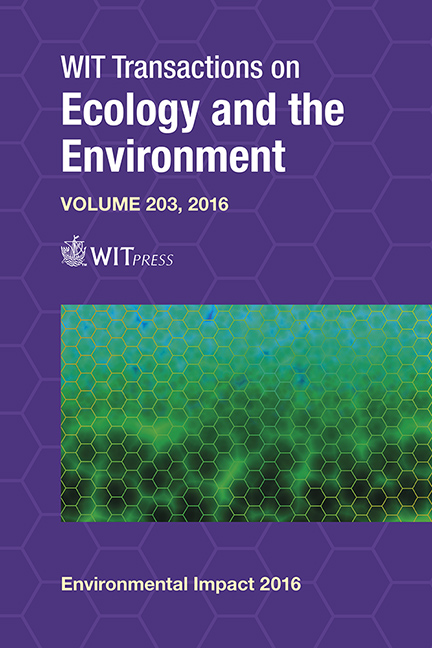A System Dynamics Approach For Estimating The Water Footprint Of The Bioethanol Supply Chain In The Region Of Orizaba In The State Of Veracruz, Mexico
Price
Free (open access)
Transaction
Volume
203
Pages
12
Page Range
171 - 182
Published
2016
Size
688 kb
Paper DOI
10.2495/EID160161
Copyright
WIT Press
Author(s)
A. Trujillo-Mata, G. Cortés-Robles, C. Sánchez-Ramírez, G. Alor-Hernández, J. L. García-Alcaraz
Abstract
The global pressure to reduce emissions combined with the negative tendency in the world oil reserves is impelling the improvement and development of renewable sources of energy. The bioethanol industry is one of the most active sectors. Under this environment, the market is facing a conflict: to increase productivity (more resources consumed), without compromising the future natural resources. In emergent countries as Mexico, there is not yet a well-developed biofuels supply chain. However, it is growing at a regular pace. As the bioethanol industry accelerates its productivity and market share, another renewable resource suffers for this expansion: the water reserves. This work proposes to integrate the Bioethanol Supply Chain Analysis with the Water Footprint Assessment. Nevertheless, water changes in time under the influence of several factors, producing a complex and dynamic behavior. Therefore, a system dynamics model to evaluate the water footprint of the bioethanol supply chain enables the capacity to simulate the impact of bioethanol production on water resources over time in the city of Orizaba in the State of Veracruz, Mexico.
Keywords
water footprint assessment, system dynamics modeling, bioethanol supply chain, causal loops diagram, emergent biofuel markets, Mexico





